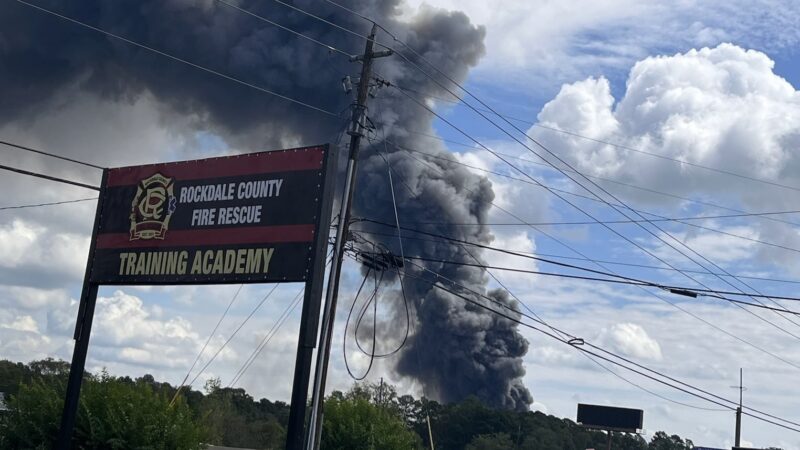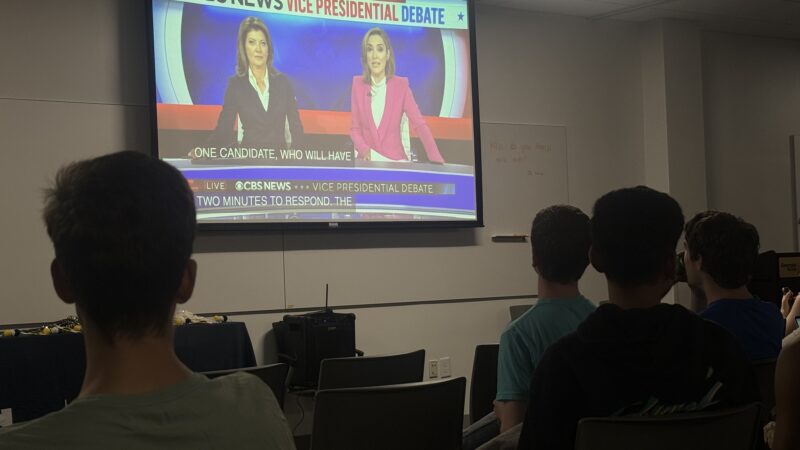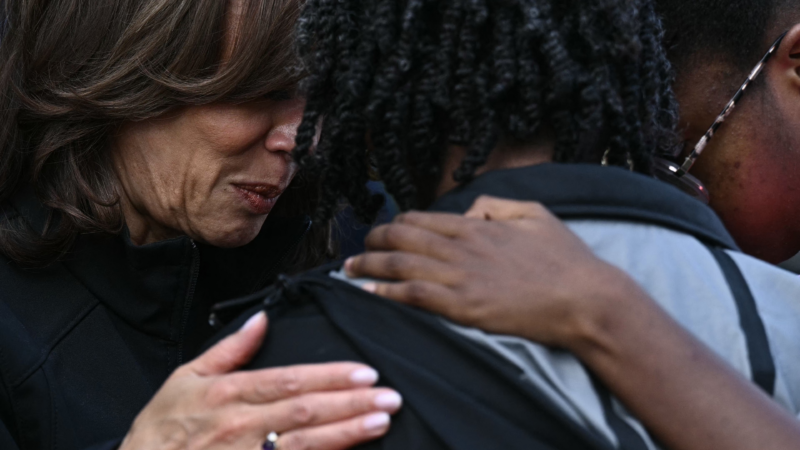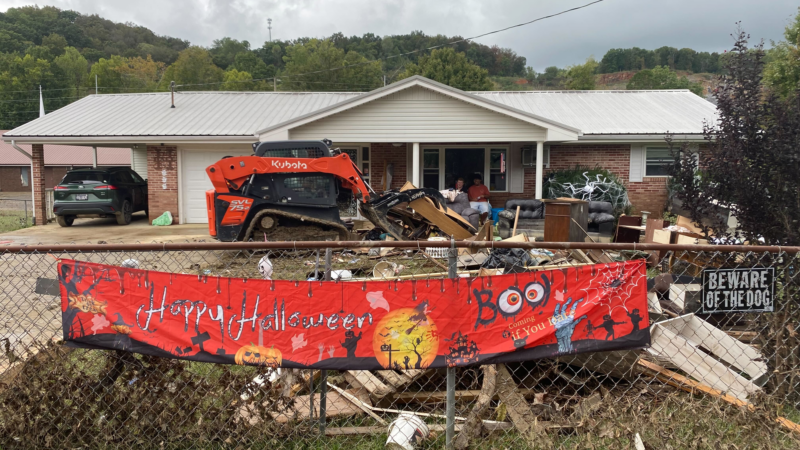PolitiFact founder says both parties need factchecking. But they don’t lie equally
Transcript:
MARY LOUISE KELLY, HOST:
Last night’s vice presidential debate stirred controversy before it even started as CBS announced the network’s moderators would largely leave fact-checking up to the candidates themselves. That led NPR’s David Folkenflik to seek out the Pulitzer Prize-winning journalist Bill Adair, founder of PolitiFact and author of a forthcoming book that argues fact-checking is not always up to the moment.
DAVID FOLKENFLIK, BYLINE: Bill Adair paid close attention to last night’s vice presidential debate, especially the moderators.
BILL ADAIR: The boldest moment, of course, was when they silenced the mics when JD Vance was going on.
(SOUNDBITE OF ARCHIVED RECORDING)
MARGARET BRENNAN: And just to clarify for our viewers, Springfield, Ohio, does have a large number of Haitian migrants who have legal status, temporary protected status.
FOLKENFLIK: That was CBS’ Margaret Brennan. Republican candidate JD Vance wasn’t having it.
(SOUNDBITE OF ARCHIVED RECORDING)
BRENNAN: Thank you. The economy…
JD VANCE: Margaret, the rules were that you guys weren’t going to fact-check. And since you’re fact-checking me, I think it’s important to say what’s actually going on.
FOLKENFLIK: And then the moderators silenced the candidates.
(SOUNDBITE OF ARCHIVED RECORDING)
BRENNAN: Gentlemen, the audience can’t hear you because your mics are cut. We have so much we want to get to. Thank you for explaining the legal process.
ADAIR: It was a moment when the network stepped in and said, enough. And I think that was a really important moment that said to the viewers, we’re not going to just let these guys keep talking and spewing things that are of questionable accuracy. We’re putting you first, viewers. And a lot of us sitting at home watching these things have felt like the networks have been too passive in letting the candidates go on and on and on.
FOLKENFLIK: As a veteran political reporter in 2007, Adair founded PolitiFact to offer reported assessments – ratings, really – of the truthfulness of claims from public officials and politicians, pants on fire being the worst of it. Others, including The Washington Post, joined the fray. Adair says that when he started, he simply wanted people to have these assessments as a resource to draw upon.
ADAIR: I’ve evolved a little bit. We see every day that these false beliefs become serious problems, whether it’s a huge number of people that believe false claims about Haitian immigrants eating dogs and cats in Springfield, Ohio, – something that is false – or more recently in Western North Carolina where there were false claims about dams breaching, and people freaked out. And so it’s really important that fact-checking journalism get to people quickly and correct this misinformation.
FOLKENFLIK: While both major political parties peddle falsehoods, Adair argues that Republicans lie more and they lie worse than Democrats, and then they lie some more to discredit the people trying to hold them to account.
ADAIR: Any fact-checker would, in a moment of candor, tell you that that’s very true, this asymmetry, that Republicans lie more. And to be clear, this was true before Donald Trump came on the scene. And it’s even more true now.
FOLKENFLIK: As a result, Adair says, reporters and fact-checkers have often pulled their punches because they fear partisan blowback. After ABC put on the sole debate between Trump and Vice President Kamala Harris, Trump called for ABC to lose its local TV licenses because its moderators pushed back when he made false claims. Adair argues that journalists cannot shy away from making such calls.
ADAIR: Journalism just can’t sit back and wait for people to come to it. I think we need to become a little more active in stepping forward and saying, that’s wrong.
FOLKENFLIK: Even so, Adair says fact-checking is part of the public discourse in a way that just wasn’t 10 or 15 years ago. And he says he takes hope from a surprising source.
ADAIR: Every now and then, Donald Trump will cite fact-checkers (laughter) in attacking his opponents, and I take that as an odd but small victory.
FOLKENFLIK: Adair’s book is called “Beyond The Big Lie.” It’s scheduled for publication on October 15.
David Folkenflik, NPR News.
GPB evening headlines for October 2, 2024
The Georgia Poison Control Center has set up a hotline for anyone with questions about a chemical fire in Conyers, east of Atlanta. Relief efforts continue in Georgia as power and water outages paralyze Augusta and other areas hardest hit by Hurricane Helene. Last night, presidential running mates, Ohio Senator JD Vance and Minnesota Governor Tim Walz faced off in a televised debate.
In watch event, Georgia students say VP debate was ‘civil’
As Sen. JD Vance and Gov. Tim Walz debated policy during Tuesday night’s vice presidential debate, college students across Georgia held watch parties.
Harris and Biden surveyed damage wrought by Hurricane Helene in 2 swing states
President Biden and Vice President Harris traveled to Georgia and North Carolina to reassure people that help is on the way. Making good on that promise is a critical test in this election year.
In battleground states, it’s not just about winning — but also losing by less
In battleground states this year, Democrats and Republicans aren’t only trying to win, they’re also trying to lose by less in the counties they lost in 2020.
On a Tennessee street hit hard by Helene flooding, strangers show up to help
Across Eastern Tennessee, people are connecting on social media to help clear out ruined furniture, scrub off mud, and deliver jugs of water so people can flush toilets.
Terry Crews describes growing up and experiencing awe on ‘Wild Card’
Actor Terry Crews answers a Wild Card question about a time he experienced awe. He says as a Black kid growing up in struggling Flint, Mich., he never thought his life would be this good.





